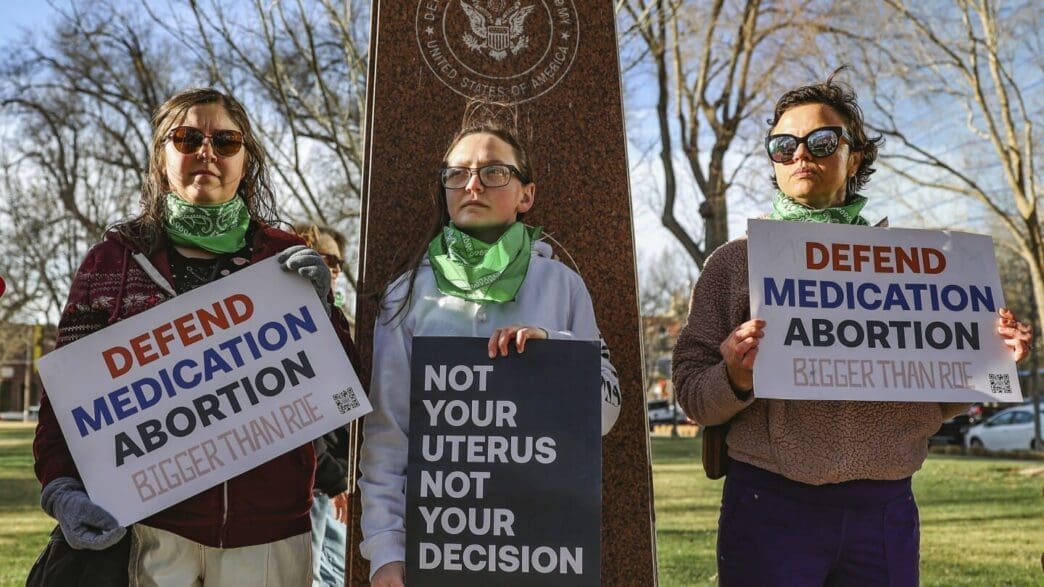In a pioneering legal move, Texas has initiated a lawsuit against a New York physician for prescribing abortion pills to a woman in the Dallas area, raising significant questions about the viability of interstate telemedicine in the current political climate. The lawsuit presents a rare but critical confrontation with state shield laws, crafted to protect medical providers in states that continue to support abortion rights.
The lawsuit, filed by Texas Attorney General Ken Paxton in Collin County, signifies one of the earliest legal tests of the protective measures that Democratic-controlled states enacted following the reversal of Roe v. Wade. These measures aim to shield medical professionals in supportive states from punitive actions imposed by states with stringent abortion laws.
Since the overturning of Roe v. Wade, there has been a noted increase in the number of abortions conducted via medication, brought about in part by the expansion of online and telephonic prescription services. This trend faces potential disruption as Texas contends that Dr. Maggie Carpenter, the New York physician in question, breached state law by providing medication to a patient in Texas, a state that enforces some of the strictest abortion restrictions in the nation.
The complaint seeks financial reparation up to $250,000, alleging violations of Texas law, though it does not involve criminal charges. According to the filing, complications following the administration of the prescribed drugs led to the woman being hospitalized, highlighting the ongoing debate over the safety and regulation of medication-induced abortions.
Compounding the complexity of the case is the position of the Abortion Coalition for Telemedicine, of which Dr. Carpenter is a co-medical director. The coalition argues that shield laws are vital for maintaining access to reproductive care across state lines and accuses Attorney General Paxton of placing personal ideology over women’s health needs. Meanwhile, New York’s Governor Kathy Hochul and Attorney General Letitia James have vowed to defend their state’s medical practitioners against out-of-state legal threats.
This legal battle unfolds as part of a broader national discourse, where Republican-led states are implementing bans and restrictions while Democratic states seek to safeguard abortion rights. The legal protections extended to healthcare providers in these Democratic regions are crucial in sustaining abortion services, particularly through telemedicine, which accounts for a significant percentage of all abortions in the U.S.
The legal intricacies are further compounded by the inclusion of a provision in New York’s shield law that permits healthcare providers to countersue plaintiffs, potentially complicating Texas’s litigation strategy. The issue of enforcement remains contentious, with legal analysts questioning Texas’s ability to execute any judgments outside its jurisdiction.
As Texas advances this lawsuit, both anti-abortion and abortion-rights advocates are closely monitoring its implications. Supporters of the lawsuit view it as a vital tool in clamping down on abortion access, while opponents argue that it jeopardizes safe medical practices and patient autonomy.
Earlier this year, anti-abortion factions pressured the Biden administration to revisit guidelines governing mifepristone, the key drug in question. The Supreme Court had previously allowed its continued use by dismissing challenges regarding its federal approval. Nevertheless, certain states have been proactive in categorizing these drugs under more restrictive classifications, further exemplifying the contentious landscape surrounding abortion rights in America.
The lawsuit against Dr. Maggie Carpenter underscores a pivotal moment in the ongoing struggle between states over abortion rights. As the case progresses, it will likely set precedents that could redefine the practicalities of accessing reproductive health services across state borders, potentially impacting millions seeking such care.
Source: Apnews








